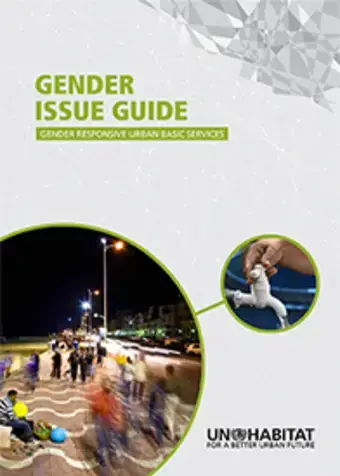Machakos, 11 February 2016 - Deans, senior lecturers of architecture schools and chairs of professional bodies of East Africa last week congregated in the Kenyan town of Machakos to discuss education for sustainability in architecture and urban planning. The meeting saw teaching staff of the different schools of architecture and built environment meet to deliberate on the topic “integration of sustainable building design into curriculum for higher learning in East Africa.” The workshop brought together so
Media Fraternity in East Africa discuss sustainable buildings
Kenya, 5 February 2016 - UN-Habitat conducted a two-day media workshop at Machakos County in Kenya with an emphasis on Green building/architecture and journalist reporting across the East African region. The workshop brought together 26 participants drawn from Kenya, Uganda, Burundi, Tanzania and Rwanda.
World Habitat Awards 2014/15 Winners Announced
 Tuesday 28 April 2015-- Winners of the 2015 World Habitat Awards were presented at the 25th Session of the UN- Habitat Governing Council in Nairobi.
Tuesday 28 April 2015-- Winners of the 2015 World Habitat Awards were presented at the 25th Session of the UN- Habitat Governing Council in Nairobi.
Kenyan building practitioners trained in sustainable building design
Nairobi, 14 July 2014: UN-Habitat, the Kenya Property Developers Association, the Kenya Association of Manufacturers, the Architectural Association of Kenya, the Kenya Green Building Society and Italy’s “Politecnico di Milano” have delivered training in sustainable design principals and energy efficiency to building practitioners in Nairobi.
 Castries, Saint Lucia, 16 June 2015 - The fifth edition of the Caribbean Urban Forum held in Castries (Saint Lucia) drew to a close on Friday 12 June, after three days of intensive discussions on sustainable urbanization.
Castries, Saint Lucia, 16 June 2015 - The fifth edition of the Caribbean Urban Forum held in Castries (Saint Lucia) drew to a close on Friday 12 June, after three days of intensive discussions on sustainable urbanization. New York, 17 March 2015 - During the 59th session on the Commission for the Status of Women, the side event Habitat III, Beijing+20 and the City We Need was hosted by the Deputy Executive Director of UN-Habitat, Ms. Aisa Kirabo Kacyira. Other distinguished panelists at the event included Ms.
New York, 17 March 2015 - During the 59th session on the Commission for the Status of Women, the side event Habitat III, Beijing+20 and the City We Need was hosted by the Deputy Executive Director of UN-Habitat, Ms. Aisa Kirabo Kacyira. Other distinguished panelists at the event included Ms.

 UN-Habitat in collaboration with partners organizes training workshops in Nairobi, Kenya and Kampala, Uganda on Green Building
UN-Habitat in collaboration with partners organizes training workshops in Nairobi, Kenya and Kampala, Uganda on Green Building